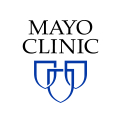Azacitidine and Entinostat in Treating Patients With Metastatic Colorectal Cancer
| Status: | Archived |
|---|---|
| Conditions: | Colorectal Cancer, Cancer |
| Therapuetic Areas: | Oncology |
| Healthy: | No |
| Age Range: | Any |
| Updated: | 7/1/2011 |
| Start Date: | April 2010 |
Phase II Study of Azacitidine and Entinostat in Patients With Metastatic Colorectal Cancer
RATIONALE: Drugs used in chemotherapy, such as azacitidine, work in different ways to stop
the growth of tumor cells, either by killing the cells or by stopping them from dividing.
Entinostat may stop the growth of tumor cells by blocking some of the enzymes needed for
cell growth. Giving azacitidine together with entinostat may kill more tumor cells.
PURPOSE: This phase II trial is studying how well giving azacitidine together with
entinostat works in treating patients with metastatic colorectal cancer.
OBJECTIVES:
Primary objectives
- To determine the preliminary efficacy of the combination of azacitidine and entinostat
in patients with metastatic colorectal cancer.
Secondary objectives
- To explore the effects of this regimen on the time to progression in these patients.
- To assess the toxicity of this regimen in these patients.
- To evaluate changes in promoter methylation of selected genes from DNA in circulating
serum samples.
- To determine changes in histone deacetylase activity and acetylation of H3 and H4
histones in pre- and post-treatment tumor biopsies.
- To evaluate correlations between these molecular effects and clinical outcomes
(response and time to progression).
OUTLINE: This is a multicenter study.
Patients receive azacitidine subcutaneously on days 1-5 and 8-10 and oral entinostat on days
3 and 10. Courses repeat every 28 days in the absence of disease progression or unacceptable
toxicity.
Blood and tumor tissue samples are collected at baseline and periodically during courses 1-3
for DNA methylation, histone deacetylation activity, and acetylation of H3 and H4 histones
analysis by PCR, western blot, and RT-PCR assays.
After completion of study therapy, patients are followed up every 3-6 months for up to 3
years.
We found this trial at
9
sites
Click here to add this to my saved trials
Sidney Kimmel Comprehensive Cancer Center at Johns Hopkins The name Johns Hopkins has become synonymous...
Click here to add this to my saved trials
4201 St Antoine St
Detroit, Michigan 48201
Detroit, Michigan 48201
(313) 577-1429

Wayne State University/Detroit Medical Center Founded in 1868, the Wayne State University School of Medicine...
Click here to add this to my saved trials
Click here to add this to my saved trials
Click here to add this to my saved trials
Mayo Clinic Cancer Center The Mayo Clinic Cancer Center is a National Cancer Institute-designated comprehensive...
Click here to add this to my saved trials
Metro-Minnesota CCOP The Metro-Minnesota Community Clinical Oncology (MMCCOP) was established in 1979 through an NCI-funded...
Click here to add this to my saved trials
Mayo Clinic Scottsdale Mayo Clinic Arizona was the second Mayo practice to be established outside...
Click here to add this to my saved trials
Siteman Cancer Center The Alvin J. Siteman Cancer Center at Barnes-Jewish Hospital and Washington University...
Click here to add this to my saved trials




